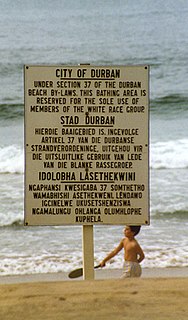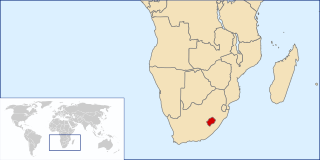| UN Security Council Resolution 402 | |
|---|---|
 Transkei (red) within South Africa, and Lesotho | |
| Date | 22 December 1976 |
| Meeting no. | 1,982 |
| Code | S/RES/402 (Document) |
| Subject | Lesotho-South Africa |
| Result | Adopted |
| Security Council composition | |
Permanent members | |
Non-permanent members | |
United Nations Security Council Resolution 402, adopted on December 22, 1976, after hearing from the Minister of Foreign Affairs for Lesotho, the Council expressed concern at South Africa's decision to close the border with Lesotho in many areas in an attempt to pressure the country to recognise the "independence" of the bantustan Transkei. After recalling previous resolutions, the Council praised Lesotho for not recognising Transkei and stated it will organise economic assistance to the country from the organisation itself and other countries to help it overcome the blockade by South Africa.

The United Nations (UN) is an intergovernmental organization tasked with maintaining international peace and security, developing friendly relations among nations, achieving international co-operation, and being a centre for harmonizing the actions of nations. It was established after World War II, with the aim of preventing future wars, and succeeded the ineffective League of Nations. Its headquarters, which are subject to extraterritoriality, are in Manhattan, New York City, and it has other main offices in Geneva, Nairobi, Vienna and The Hague. The organization is financed by assessed and voluntary contributions from its member states. Its objectives include maintaining international peace and security, protecting human rights, delivering humanitarian aid, promoting sustainable development, and upholding international law. The UN is the largest, most familiar, most internationally represented and most powerful intergovernmental organization in the world. At its founding, the UN had 51 member states; there are now 193.

Lesotho, officially the Kingdom of Lesotho, is an enclaved country within the border of South Africa. It is one of only three independent states completely surrounded by the territory of another country, and the only one outside of the Italian peninsula. Lesotho is just over 30,000 km2 (11,583 sq mi) in size and has a population of around 2 million. Its capital and largest city is Maseru.

South Africa, officially the Republic of South Africa (RSA), is the southernmost country in Africa. It is bounded to the south by 2,798 kilometres (1,739 mi) of coastline of Southern Africa stretching along the South Atlantic and Indian Oceans; to the north by the neighbouring countries of Namibia, Botswana, and Zimbabwe; and to the east and northeast by Mozambique and Eswatini (Swaziland); and it surrounds the enclaved country of Lesotho. South Africa is the largest country in Southern Africa and the 25th-largest country in the world by land area and, with over 57 million people, is the world's 24th-most populous nation. It is the southernmost country on the mainland of the Old World or the Eastern Hemisphere. About 80 percent of South Africans are of Bantu ancestry, divided among a variety of ethnic groups speaking different African languages, nine of which have official status. The remaining population consists of Africa's largest communities of European, Asian (Indian), and multiracial (Coloured) ancestry.
Contents
The resolution went on to ask the Secretary-General to monitor the situation in the region and to later report to the Security Council.

The secretary-general of the United Nations is the head of the United Nations Secretariat, one of the six principal organs of the United Nations. The secretary-general serves as the chief administrative officer of the United Nations. The role of the United Nations Secretariat, and of the secretary-general in particular, is laid out by Chapter XV of the United Nations Charter.
No details of the voting were given, other than that it was "adopted by consensus".











